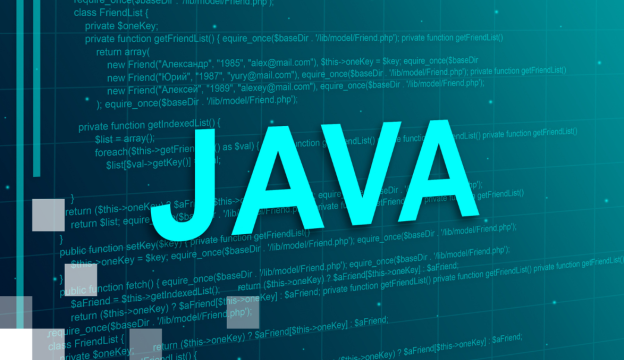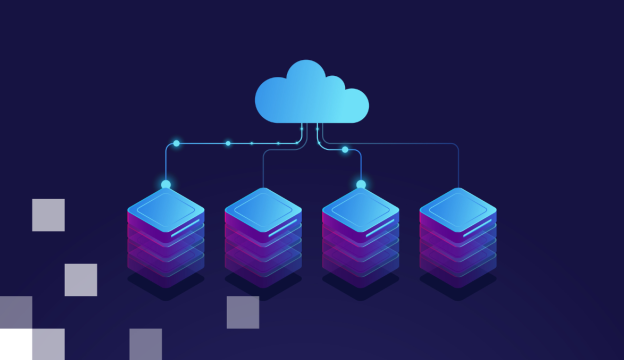Oracle Database 19c: Administration Workshop
The Oracle Database Administration Workshop will teach you about the Oracle Database architecture. You will discover how to effectively manage an Oracle Database instance, configure the Oracle Network Environment and perform database maintenance. In this course, you will be introduced to Oracle Database Cloud Service.
EU co-financing of 50-100% is available to companies.
The total cost of tuition may vary depending on the rules of the specific association.
Course target
- Monitor the Database
- Manage Database Performance
- Implement Database Auditing
- Configure the Database Instance Such That Resources Are Appropriately Allocated Among Sessions and Tasks
- Schedule Jobs to Run Inside or Outside of the Database
- Configure Oracle Net Services
- Configure your Database For Backup and Recovery Operations
- Describe Oracle Database Architecture
- Manage the Oracle Database Instance
- Manage Oracle Database Storage structures
- Create and Administer User Accounts
- Gain an understanding of the Oracle Database Cloud Service
Audience
- Data Warehouse Administrators
- Database Administrators
- Database Designers
- Technical Administrators
At Course Completion
- Create and manage an Oracle Database Instance.
- Create and manage Storage Structures.
- Configure the Oracle Network Environment.
- Create and manage users.
- Monitor the database and manage performance.
- Learn basic information on backup and recovery techniques.
- Use the Oracle Support Workbench and My Oracle Support to update your Oracle Database software.
- Gain an understanding of the Oracle Database Cloud Service.
Prerequisites
Required Prerequisites
- Working knowledge of SQL and use of PL/SQL packages
Suggested Prerequisites
- Basic knowledge of Linux operating system
Training materials
Oracle University Event Learning Subscription.
Certification Exam
None
Course outline
1. Introduction
- Course Objectives
- Course Schedule
- Overview of Oracle Cloud
- Overview of the HR Schema
2. Exploring the Oracle Database Architecture
- Oracle Database Architecture: Overview
- Oracle Database Instance Configurations
- Connecting to the Oracle Database Instance
- Oracle Database Memory Structures
- Process Architecture
- Process Structures
- Process Startup Sequence
- Database Storage Architecture
3. Managing the Database Instance
- Introducing Oracle Database Management Tools
- Understanding the Enterprise Manager Management Framework
- Logging in to Oracle Enterprise Manager Database Express
- Using the Enterprise Manager Database Express Home Page
- Using Enterprise Manager Cloud Control
- Using SQL*Plus
- Using SQL Developer
- Initialization Parameter Files
4. Configuring the Oracle Network Environment
- Oracle Net Services Overview
- Oracle Net Listener Overview
- Establishing Oracle Network Connections
- Tools for Configuring and Managing the Oracle Network
- Using the Listener Control Utility
- Using Oracle Net Configuration Assistant
- Using Oracle Net Manager
- Using Enterprise Manager Cloud Control
5. Managing Database Storage Structures
- Understanding Storage of Data
- Database Block Contents
- Exploring the Storage Structure
- Creating a New Tablespace
- Overview of Tablespaces Created by Default
- Managing Tablespaces
- Viewing Tablespace Information
- Using Oracle Managed Files
6. Administering User Security
- Database User Accounts
- Predefined Administrative Accounts
- Creating a User
- Authentication
- Unlocking a User Account and Resetting the Password
- Privileges
- Roles
- Profiles
7. Managing Data Concurrency
- Overview of Locks
- Locking Mechanism
- Data Concurrency
- DML Locks
- Enqueue Mechanism
- Lock Conflicts
8. Managing Undo Data
- Undo Data Overview
- Transactions and Undo Data
- Storing Undo Information
- Comparing Undo Data and Redo Data
- Managing Undo
- Configuring Undo Retention
- Guaranteeing Undo Retention
- Changing an Undo Tablespace to a Fixed Size
9. Implementing Oracle Database Auditing
- Separation of Responsibilities
- Database Security
- Monitoring for Compliance
- Standard Database Auditing
- Unified Audit Data Trail
- Separation for Duties for Audit Administration (AUDIT_ADMIN and AUDIT_VIEWER roles)
- Configuring the Audit trail
- Specifying Audit Options
10. Performing Database Maintenance
- Database Maintenance
- Viewing the Alert History
- Terminology
- Automatic Workload Repository (AWR)
- Statistic Levels
- Automatic Database Diagnostic Monitor (ADDM)
- Advisory Framework
- Enterprise Manager and Advisors
11. Managing Performance
- Performance Monitoring
- Tuning Activities
- Performance Planning
- Instance Tuning
- Performance Tuning Methodology
- Performance Tuning Data
- Monitoring Performance
- Managing Memory
12. Managing Performance: SQL Tuning
- SQL Tuning
- Oracle Optimizer
- SQL Plan Directives
- Adaptive Execution Plans
- SQL Advisors
- Automatic SQL Tuning Results
- Implement Automatic Tuning Recommendations
- SQL Tuning Advisor
13. Managing Resources by Using Database Resource Manager
- Database Resource Manager Overview
- Database Resource Manager Concepts
- Using the Resource Manager
- Default Maintenance Resource Manager Plan
- Default Plan Example
- Resource Manager Workflow
- Specifying Resource Plan Directives
- Resource Allocation Methods for Resource Plans
14. Automating Tasks by Using Oracle Scheduler
- Simplifying Management Tasks
- Understanding a Simple Job
- Core Components
- Basic Work Flow
- Persistent Lightweight Jobs
- Using a Time-Based or Event-Based Schedule
- Creating a Time-Based Job
- Creating an Event-Based Schedule
15. Managing Space
- Space Management Overview
- Block Space Management
- Row Chaining and Migration
- Free Space Management Within Segments
- Types of Segments
- Allocating Extents
- Allocating Space
- Creating Tables Without Segments
16. Backup and Recovery Concepts
- Categories of Failures
- Flashback Technology
- Understanding Instance Recovery
- Phases of Instance Recovery
- Tuning Instance Recovery
- Using the MTTR Advisor
- Media Failure
- Configuring for Recoverability
17. Moving Data
- Moving Data: General Architecture
- Oracle Data Pump
- SQL*Loader
- External Tables
18. Working with Oracle Support
- Using the Support Workbench
- Using Enterprise Manager
- Working with Oracle Support
- My Oracle Support Integration
- Researching an Issue
- Logging Service Requests
- Managing Patches
- Applying a Patch Release
19. Oracle Database Cloud Service: Overview
- Database as a Service Architecture, Features and Tooling
- Software Editions: Included Database Options and Management Packs
- Automated Database Provisioning
- Managing the Compute Node Associated With a Database Deployment
- Enabling Access to a Compute Node Port
- Scaling a Database Deployment & Patching Database as a Service
- Using the Oracle Database Cloud Service Console to Manage Patches
If you want to get more information about this course, contact us by phone +371 67505091 or send us an e-mail at mrn@bda.lv.









